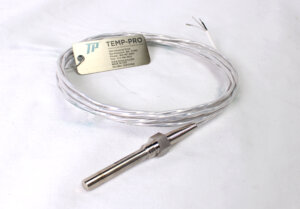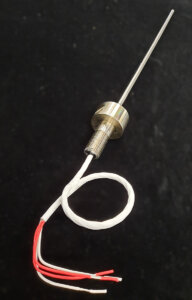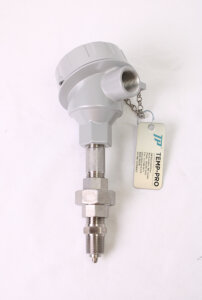 Mastering low-temperature applications in the diverse and complex environment of industrial processes offers unique challenges and opportunities. Since 1972, Temp-Pro has been at the forefront of this exploration, engineering solutions that enable industries to navigate the complexities of operating in low temperature environments. This deep dive into low-temperature applications reveals the hurdles inherent in these conditions and the innovative solutions that have been developed to overcome them. The discourse spans from the intricacies of material science to the cutting-edge of temperature sensor technology, offering a comprehensive overview of how to thrive in the cold.
Mastering low-temperature applications in the diverse and complex environment of industrial processes offers unique challenges and opportunities. Since 1972, Temp-Pro has been at the forefront of this exploration, engineering solutions that enable industries to navigate the complexities of operating in low temperature environments. This deep dive into low-temperature applications reveals the hurdles inherent in these conditions and the innovative solutions that have been developed to overcome them. The discourse spans from the intricacies of material science to the cutting-edge of temperature sensor technology, offering a comprehensive overview of how to thrive in the cold.
Material Challenges at Low Temperatures
One of the primary obstacles in low-temperature applications is the behavior of materials in extreme cold. Metals become brittle, lubricants may freeze or lose their viscosity, and plastics can shatter like glass. This poses a significant challenge for the manufacturing and maintenance of industrial equipment, including temperature sensors, which must remain reliable and accurate in such conditions. High-performance materials, such as certain alloys and synthetic lubricants designed for low temperatures, offer a solution by maintaining their integrity and functionality even in the harshest of environments.
 Ensuring Accuracy of Temperature Measurement
Ensuring Accuracy of Temperature Measurement
Accurate temperature measurement is crucial in low-temperature applications, where even minor deviations can have significant implications for process control and product quality. Traditional temperature sensors may struggle to provide reliable readings in extreme cold, leading to data inaccuracies that can compromise safety and efficiency. Solid-state sensors, known for their durability and precision across a wide range of temperatures, emerge as a superior choice. Their ability to operate effectively in low-temperature environments ensures that measurements are both accurate and consistent, enabling better control and decision-making.
Energy Efficiency and Insulation
Operating in low temperatures often requires additional energy to maintain process temperatures and protect equipment from freezing. This increased energy demand can lead to higher operational costs and a larger carbon footprint. Innovations in insulation materials and techniques have provided a pathway to mitigating these issues. High-performance insulation can drastically reduce heat loss, ensuring that systems remain energy efficient while maintaining the necessary environmental conditions for optimal performance.
Addressing Condensation and Ice Formation
Condensation and ice formation pose significant risks in low-temperature applications, potentially leading to equipment malfunction, safety hazards, and process interruptions. The challenge is not only to prevent the formation of ice but also to manage any condensation that occurs as temperatures fluctuate. Solutions include the use of dehumidification systems and specially designed enclosures that keep moisture away from sensitive components, thereby ensuring the long-term reliability and functionality of temperature sensing equipment.
Long-Term Stability and Maintenance
The longevity and maintenance of equipment in low-temperature conditions are critical considerations for industries operating on a large scale over long periods. The selection of sensors and components that can withstand the rigors of extreme cold without degradation is essential. Technologies that offer solid-state reliability and high performance, combined with designs that facilitate easy access for maintenance, address these challenges. They ensure that systems can operate continuously and efficiently, with minimal downtime for repairs or adjustments.
Navigating the Wide Range of Applications
 Low-temperature applications are not monolithic but span a wide range of industries and processes, from cryogenic storage to aerospace testing. Each application comes with its own set of requirements and challenges. Customization and flexibility in temperature sensor design allow for solutions that can be tailored to meet the specific needs of each application, ensuring optimal performance across a broad spectrum of low-temperature environments.
Low-temperature applications are not monolithic but span a wide range of industries and processes, from cryogenic storage to aerospace testing. Each application comes with its own set of requirements and challenges. Customization and flexibility in temperature sensor design allow for solutions that can be tailored to meet the specific needs of each application, ensuring optimal performance across a broad spectrum of low-temperature environments.
The journey through the chilling challenges of low-temperature applications underscores the importance of innovation, precision, and reliability in temperature sensor technology. As industries continue to push the boundaries of what is possible in extreme conditions, the need for specialized solutions becomes ever more critical.
Type T thermocouples specialize in extremely low temperatures and are known for their blue extensions and positive leads. Type T thermocouples are made with a combination of copper and constantan and are best suited for temperatures between -300 and 700 degrees Fahrenheit, making them a natural fit for food monitoring and environmental applications and a favorite for freezer and cryogenic situations. Plus, they can withstand wet conditions.
Another advantage of Type T thermocouples is that they feature high corrosion resistance that can limit errors caused by temperature gradients. These temperature sensors are used in mild oxidizing atmospheres, although protection tubes are recommended for use in those environments.
PT-100 RTDs serve as an important role in both cryogenic research and industrial cryogenics applications.
Temp-Pro offers 2, 3 and 4 wire RTD Probe designs, related Extension cables, Wires and Connectors along with accessories. Whether you’re navigating the intricacies of cryogenic processes or ensuring the integrity of aerospace materials, we invite you to reach out and explore how our solutions can enhance your low-temperature applications.
Together, let’s embrace the cold with confidence and technology that keeps you in control, no matter the temperature.



